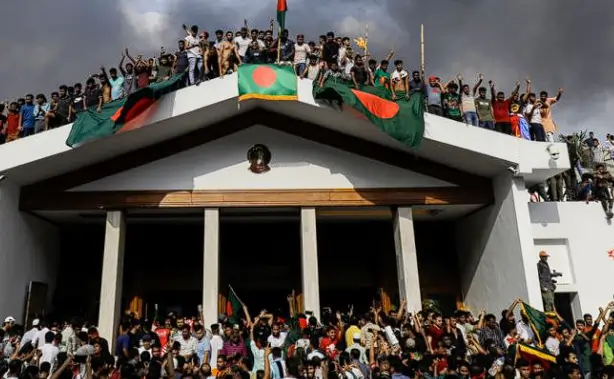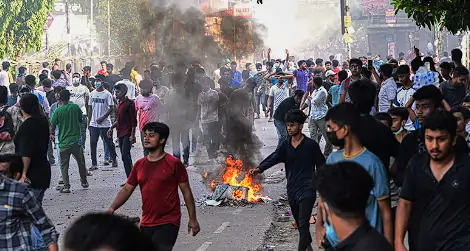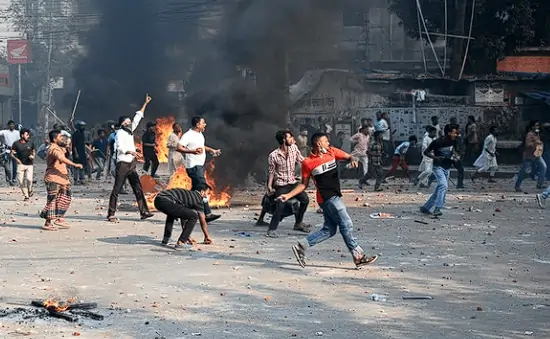


In recent months, Bangladesh has been gripped by a wave of protests, drawing attention both domestically and internationally. These protests have highlighted significant political, economic, and social issues facing the country. As we delve into the details, it becomes clear why these demonstrations have captured widespread attention and what implications they may hold for the future of Bangladesh.
Historical Context
Bangladesh has a rich history of political activism and social movements. Since its independence from Pakistan in 1971, the nation has experienced several periods of political unrest, driven by various factors such as governance issues, economic disparities, and social injustices. The tradition of protest is deeply rooted in the country’s history, with significant movements like the Language Movement of the 1950s and the mass uprisings of 1969 against Pakistani rule.
Key Issues Leading to the Recent Protests
The recent protests in Bangladesh are primarily driven by dissatisfaction with the current government’s policies and actions. The key issues include:
1. Economic Discontent:
The economic challenges faced by ordinary citizens have been a major catalyst for the protests. Rising inflation, unemployment, and the perceived mismanagement of the economy have left many people struggling to make ends meet. The economic disparity between the wealthy elite and the general population has only exacerbated the situation.
2. Political Repression:
Allegations of political repression, including the arrest and harassment of opposition leaders and activists, have fueled public anger. Critics argue that the government has increasingly resorted to authoritarian measures to stifle dissent and maintain its grip on power.
3. Corruption:
Corruption remains a pervasive issue in Bangladesh, affecting various sectors of society. Reports of embezzlement of public funds, bribery, and nepotism have eroded public trust in government institutions. The lack of accountability and transparency has further deepened the sense of frustration among citizens.
4. Human Rights Concerns:
Human rights organizations have raised concerns about the treatment of protesters and activists. Reports of police brutality, arbitrary arrests, and restrictions on freedom of speech and assembly have drawn condemnation both within and outside the country.
Timeline of Recent Events
The recent protests began gaining momentum in late 2023, with a series of demonstrations organized by student groups, labor unions, and civil society organizations. Some key events include:
• November 2023:
Protests erupted in major cities like Dhaka and Chittagong over rising fuel prices and the cost of living. The government responded with a heavy-handed approach, deploying riot police and arresting several demonstrators.
• December 2023:
The arrest of prominent opposition leader Khaleda Zia sparked further protests. Supporters of the opposition Bangladesh Nationalist Party (BNP) took to the streets, demanding her release and calling for fair elections.
• January 2024:
: Labor unions organized a nationwide strike to protest against poor working conditions and low wages in the garment industry, a crucial sector of the Bangladeshi economy. The strike saw significant participation and led to clashes between workers and security forces.
Government Response
The government’s response to the protests has been a mix of concessions and crackdowns. While it has promised some economic relief measures and initiated dialogue with certain protest groups, it has also intensified efforts to suppress dissent. The use of tear gas, rubber bullets, and mass arrests has been widely criticized by human rights organizations.
In a bid to restore order, the government has also sought to control the narrative by imposing restrictions on media coverage and internet access. This has raised concerns about press freedom and the right to information in the country.
Implications for the Future
The recent protests in Bangladesh have underscored the urgent need for political and economic reforms. The government’s ability to address the underlying issues driving the unrest will be crucial in determining the country’s future stability. The international community is closely monitoring the situation, with several countries and organizations calling for restraint and dialogue. The outcome of these protests could have far-reaching implications for Bangladesh’s democratic institutions and its standing on the global stage.
Conclusion
The recent protests in Bangladesh reflect deep-seated grievances and a desire for change among the populace. As the government navigates this turbulent period, it faces the challenge of balancing security with the need for meaningful reforms. The road ahead is uncertain, but the voices calling for justice and equality continue to resonate loudly across the nation.